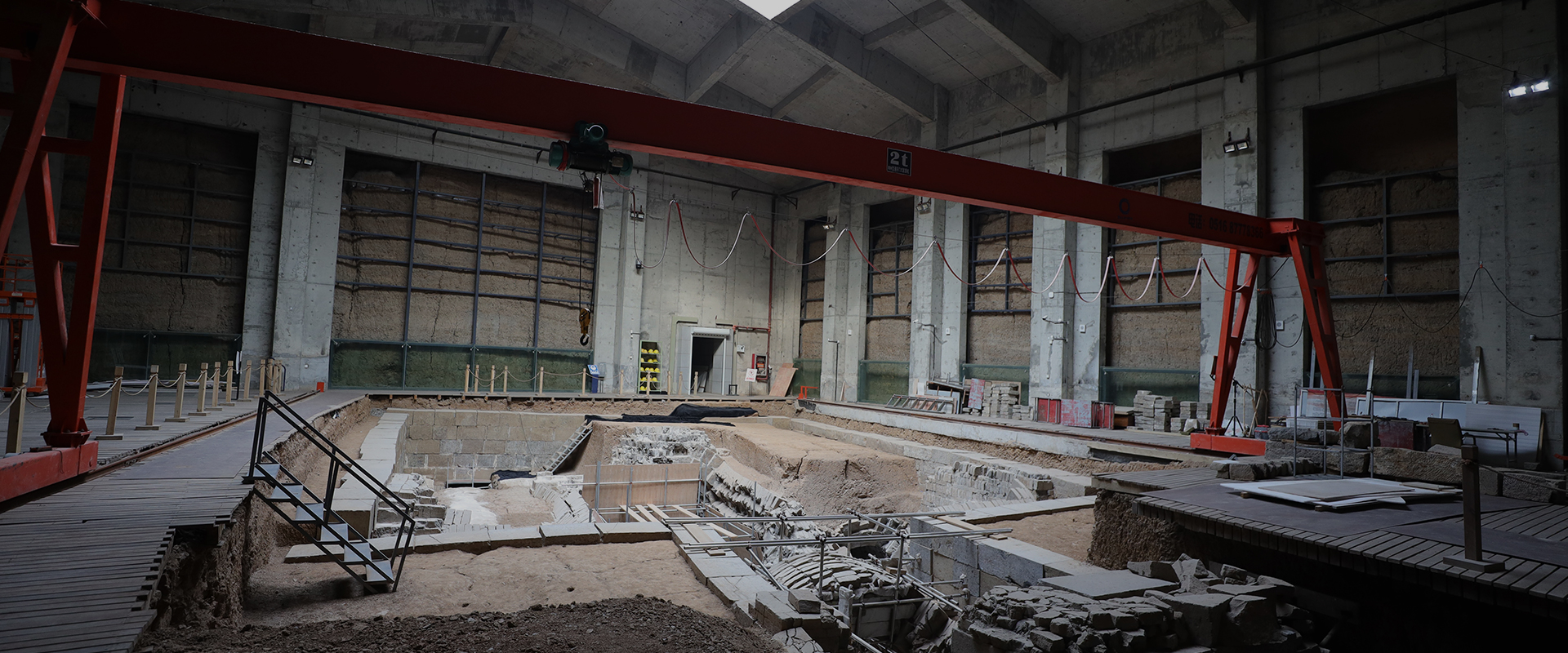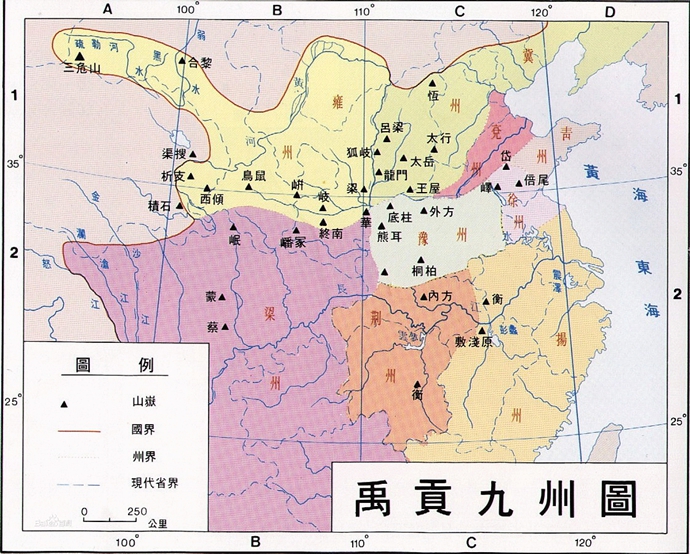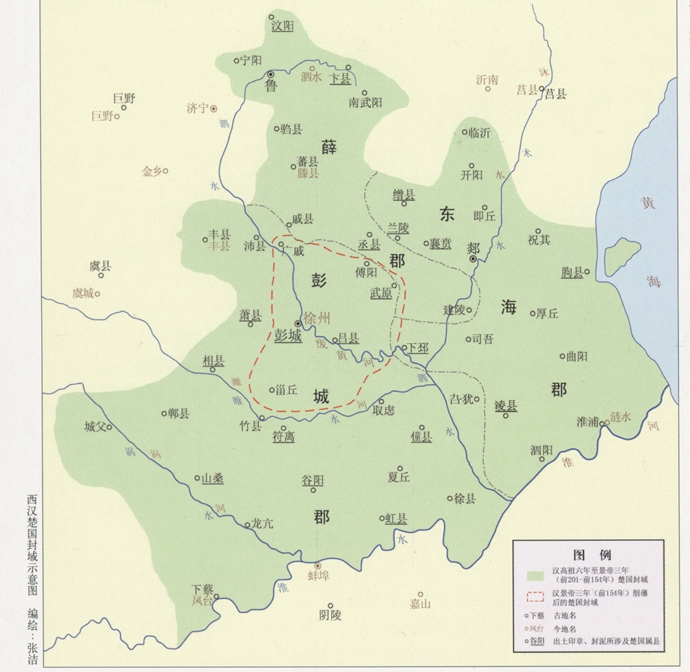

Xuzhou Han Culture Academic
Submit
【XU BO】Maximum daily capacity: 10,000 person-times Instantaneous capacity: 2,500 person-times

Xuzhou City is located in the middle of the eastern coast of China and in the northwest of Jiangsu Province. It has jurisdiction over Tongshan, Yunlong, Gulou, Quanshan and Jiawang districts, Feng, Pei, Suining counties and Pizhou and Xinyi cities.
Xuzhou has a superior geographical location, with Qilu in the north, Jianghuai in the south, the sea in the east and the Central Plains in the west. The natural conditions are unique, with hills and valleys alternating in the region, which has been rich since ancient times. The old route of the Yellow River (ancient Surabaya) flows from west to east, the Beijing-Hangzhou Canal flows from north to south, and the Beijing-Shanghai and Longhai railways meet here. It is known as the "thoroughfare of five provinces" and is a regional central city at the intersection of Jiangsu, Shandong, Henan and Anhui.
With a history of more than 4000 years, Xuzhou is the birthplace of the Han Dynasty and a national historical and cultural city.

The fine stone tools unearthed from the Maling Mountain in Xinyi, Xuzhou, show that human activities existed here as early as 10000 years ago. The Yuandun Longshan Cultural Site at the east foot of Yunlong Mountain in the urban area shows that the ancestors lived and multiplied here four thousand years ago.
Xuzhou, known as Pengcheng in ancient times, refers to the city of Pengguo in Xuzhou. According to the Records of the Historian, Yan Keng, the son of Lu Zhong in the Xia Dynasty, founded the State of Peng Fang. He is also known as Peng Keng, and is regarded as the ancestor of the State of Peng, that is, the legendary birthday star Peng Zu. In the Shang Dynasty, Peng State was relatively powerful and was called "Dapeng". In Luo Zhenyu's Pre-edition of the Book of the Yin Ruins, there is an oracle bone inscription that reads: "Xin Chou Bu, Geng, Zhen, and Ju take Peng." It means that King Wu Ding of the Shang Dynasty divines to attack the powerful state of Peng, which is a threat to the Shang Dynasty. According to the Bamboo Chronicle, in the forty-third year of Wuding's reign, "Wang Shi destroyed Dapeng". Pengguo has been in the Xia and Shang dynasties for about 800 years. During the Western Zhou Dynasty, Pengcheng belonged to the Song Dynasty. The Zuo Zhuan recorded that the 18th year of the Duke of Lu Cheng (573 BC) was the eastern capital of the Song Dynasty - Pengcheng. According to Qian Mu, Song was threatened by the State of Wei, and the Warring States moved its capital to Pengcheng.
Pengcheng was established as a county in the Qin Dynasty. During the Qin and Han Dynasties, Xiang Yu, the overlord of the Western Chu Dynasty, commanded the world to have nine counties and Pengcheng. In the sixth year of the reign of the Han Emperor (201 BC), Liu Bang granted his mother and brother Liu Jiao to the State of Chu, and the thirty-six counties of Wangdonghai, Xuejun, and Pengcheng, the capital of Pengcheng. At the beginning of the Eastern Han Dynasty, Emperor Guangwu granted his son Liu Ying the king of Chu. In the second year of Zhanghe's reign (88), Emperor Zhanghe issued an imperial edict granting his half-brother Liu Gong the king of Pengcheng, both of which are capital of Pengcheng. During the period of Emperor Wei Ming of the Three Kingdoms (227-239), Pengcheng became the seat of the Xuzhou governor's office. During that period, in the sixth year of Taihe (232), Cao Shuo was granted the title of King Pengcheng.

During the Northern and Southern Dynasties, Xuzhou in the Northern Wei Dynasty also established the Southeast Road Pedestrian, and the Northern Zhou Dynasty established the Xuzhou Governor's Office, which was the result of the Sui and Tang Dynasties. In the Tang Dynasty, Xu Sihao, the Wuning Army and the Reformation Army were stationed first and then. In the Five Dynasties and the Northern Song Dynasty, Xuzhou and Wuning were set up as military envoys. In the Yuan Dynasty, Wu'an Prefecture was merged into Pengcheng County. In the Ming and Qing Dynasties, it was Zhili Prefecture, and in the 11th year of Yongzheng's reign in the Qing Dynasty (1733), it was promoted to the prefecture.